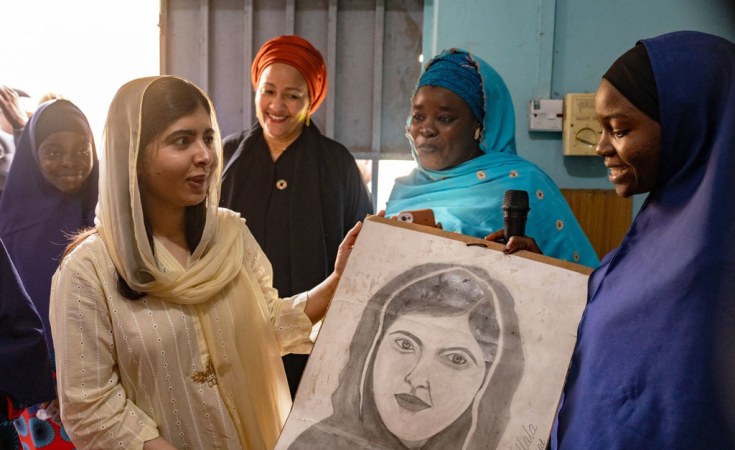The Nobel laureate says she is in Nigeria as part of the activities to mark her 26th birthday celebration.
Vice President Kashim Shettima and Malala Yousafzai, a Pakistani female education activist, on Wednesday at the Presidential Villa, Abuja, held talks on girl-child education.
Malala was the 2014 Nobel Peace Prize winner at 17 and the world's youngest Nobel Prize laureate. She is also the UN Messenger of Peace.
The education activist, accompanied by UN Deputy Secretary-General, Amina Mohammed, told State House correspondents that visiting Nigeria was part of activities to mark her 26th birthday celebration.
"I am here in Nigeria to celebrate my 26th birthday; since my UN speech at age 16, I have been going around the world, meeting girls from different parts of the world and raising awareness about the issues that girls face.
"We know that there are more than 120 million girls who do not have access to education right now, and just as people spoke out about my education, I want them to think about the education of other girls as well.
" In Nigeria, I am here because girls' education is important here; it will determine the future of Nigeria.
" So, I am here because I want to bring attention to those issues; I am here to speak as well and share my thoughts with the communalities, and also lucky that I was able to meet girls in Abuja."
Malala said she had gone to Borno and met incredible girls, visited their schools and conferred with education activists.
According to her, it is the work of the education activists, girls, civil society and government that gives hope that there can be a better future and education, especially for girls here.
The activist said she was excited to meet the vice president, who was supportive of her mission.
"I would ask here in Nigeria that all governments of states; all party members make the commitment to ensure that every child in Nigeria has access to a complete education, which includes senior secondary education as well.
"That every child has access to free and quality education, and the second I ask is that we make full financial commitment to ensure that no child is left behind in this country."
Malala said she had been to Nigeria three times and expressed optimism that the girl-child had bright prospects.
She lauded the commitment of the government and other stakeholders to improving girl-child education.
"I came here in 2014 to show solidarity to the Chibok girls who had been abducted, and I was able to meet their parents as well; I came here again in 2017, and I saw more of the work that activists are doing, and I met girls.
"I am here again, and I have seen how much has changed in the past few years, and it is because of the commitment of government officials and also the work of the civil society and education activists and the determination of girls.
"I was able to meet girls and hear from them directly how they are standing up for their rights; they are not remaining silent."They want a better education; they want quality education for themselves; so, that is what gives me hope, and that is what brings me to Nigeria, and I think that tells us that the future of Nigeria is bright if you give girls a chance and if you invest in their education," she said.
On her part, Mrs Mohammed said that Malala's visit was in furtherance of her advocacy for girl-child education.
She said that by the high number of out-of-school children in Nigeria, Malala should be an inspiration for relevant authorities to address the challenge.
"Ten years ago, Malala made her speech at the UN; she is the UN Peace Messenger; this time around, you decided on her 10th anniversary she wanted to make the advocacy for education here in this country.
"We have a large number of out-of-school children; we know that the quality of education in the country; this is an advocacy to an administration that is coming in; that believes in education is an important timing.
"So, her voice, her inspiration, not just to government, but the rest of society, to governors that we met yesterday, is extremely important as this administration begins its journey of the next four years," Mrs Mohammed said.
(NAN)


